Investment treaty to top China-US S&ED agenda, doable under Obama administration
Updated: 2015-06-22 10:36
(Xinhua)
|
||||||||
David Dollar, a senior fellow at the Brookings Institution, said there will be a lot of discussions to move the BIT negotiations more quickly at the upcoming S&ED meetings.
"The important question is would there be any what we call ' early harvest'," said Dollar, referring to China's willingness to open some sectors for foreign investment soon before a treaty is agreed upon.
If China opens up some sectors soon and improves market access for US and other foreign investment, that will "create a much stronger foundation in the United States for moving ahead with the bilateral investment treaty," said Dollar, a former US Department of Treasury's economic and financial emissary to China.
Dollar believed it's in China's interest to open more sectors for foreign investment as China could gain a lot of efficiency from increased market competition.
While negotiations on the investment treaty will not be easy, experts are optimistic that the US and China could finish the BIT talks under Obama administration. "There is more room for agreement than people realized," Posen said. "I certainly think (it's) doable before President Obama leaves office."
"We try very hard to conclude negotiations" of the investment treaty next year based on "reality and hard work of both negotiation teams," Zhu said in April, noting that the BIT talks are considered the most important issue in the two nation's economic relationship.
Once the investment treaty is struck, it would require a two- thirds vote in the US Senate for approval. "My feeling is the ratification will have to wait until after the next presidential election," said Huang.
"We often have a situation where a trade agreement is negotiated under one president, and then approved under the next one, and even if the party switches," echoed Dollar, citing the North American Free Trade Agreement (NAFTA), covering Canada, Mexico and the US, as an example to illustrate his point of view. NAFTA was first negotiated under former Republican President George H.W. Bush, and then approved under the following Democratic President Bill Clinton.
"I think basically they would vote yes because they would be hearing from, particularly from American business community. This is very important for the development of the US economy," Dollar said of the Senate's support for BIT.
Posen was confident that the BIT would be finally approved by the Senate, though the US and China have had tensions over issues such as the South China Sea dispute, cyber security.
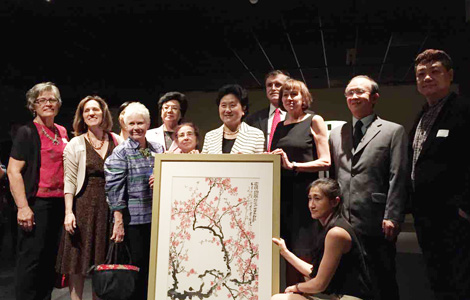
 Liu visits Houston Museum of Natural Science
Liu visits Houston Museum of Natural Science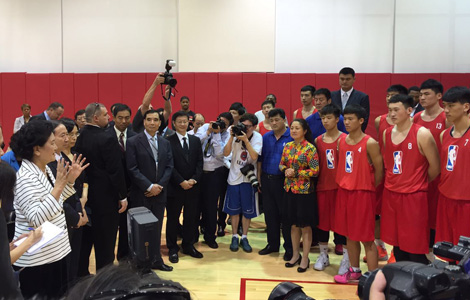
 Liu meets Tsinghua Youth team in Houston
Liu meets Tsinghua Youth team in Houston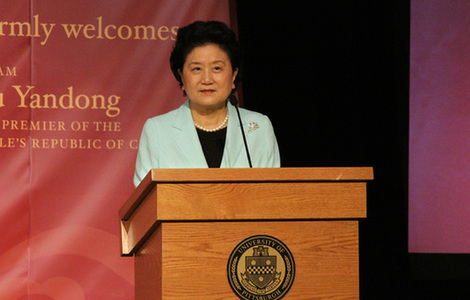
 Liu visits CI in Pittsburgh
Liu visits CI in Pittsburgh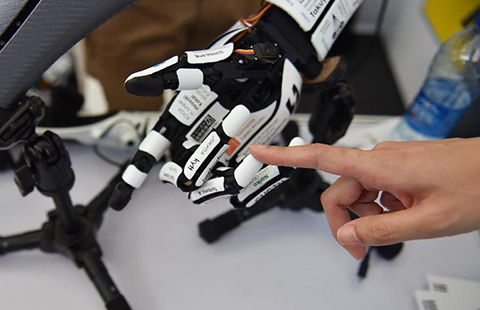
 Shenzhen Maker Week kicks off
Shenzhen Maker Week kicks off
 Chinese wrap up Zongzi to mark upcoming Dragon Boat Festival
Chinese wrap up Zongzi to mark upcoming Dragon Boat Festival
 A Chinese Garden in a Sister City
A Chinese Garden in a Sister City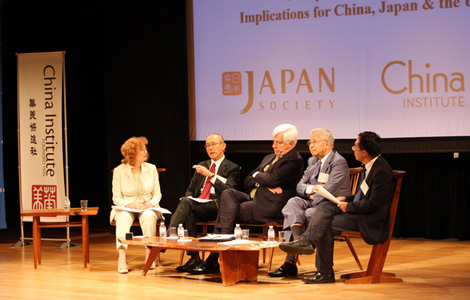
 Across America over the week (June 12-18)
Across America over the week (June 12-18)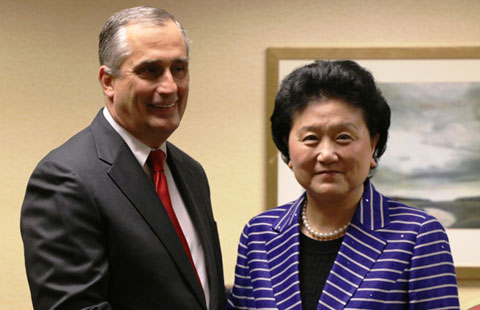
 Liu meets Intel CEO
Liu meets Intel CEO
Most Viewed
Editor's Picks

|

|

|

|

|

|
Today's Top News
Tsinghua students flying high
Chinese Premier emboldens state firms' int'l industrial cooperation
CI in Pittsburgh welcomes
vice-premier
Sichuan and Pittsburgh unveil
new school
Russia, China do not form blocs against anyone: Putin
More than 'greet'
and 'meet'
Liu Yandong meets
Pittsburgh mayor
Innovation competition marks 10th anniversary
US Weekly

|

|





